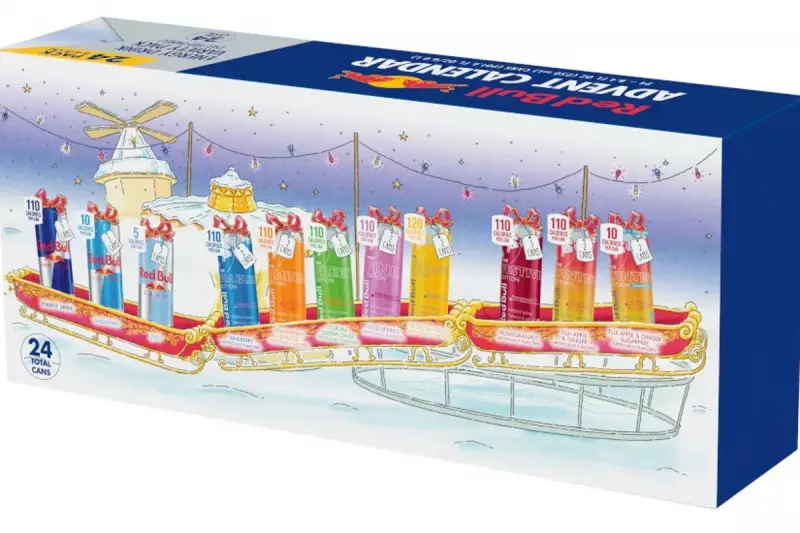
Energy drink giant Red Bull has stirred controversy with its latest festive offering—an advent calendar packed with 24 full-sized cans of their signature beverage, drawing sharp criticism from health experts and consumer advocates.
What's Inside the Controversial Calendar
The £24.99 calendar, available through Red Bull's online store, contains a mix of original, sugar-free, watermelon, and tropical flavoured editions. Marketed as "the perfect way to count down to Christmas," the product has raised eyebrows among health professionals who question the appropriateness of encouraging daily energy drink consumption.
Health Experts Sound the Alarm
Nutrition specialists and public health advocates have expressed serious concerns about the calendar's potential impact. "Promoting the daily consumption of energy drinks in the lead-up to Christmas is irresponsible," stated Dr Sarah Jenkins, a nutrition researcher at London Metropolitan University. "These products contain high levels of caffeine and sugar that can be particularly harmful when consumed regularly."
The Growing Backlash
Social media reactions have been mixed, with some consumers excited about the novelty while others describe it as "terrible" and "concerning." The controversy comes amid ongoing debates about energy drink marketing practices and their appeal to younger audiences.
Current NHS guidelines recommend that children avoid energy drinks entirely, while adults should limit their caffeine intake to 400mg daily—equivalent to approximately five cans of Red Bull.
Broader Industry Context
This isn't the first time energy drink companies have faced scrutiny over their marketing strategies. Several major UK retailers have already implemented voluntary bans on selling energy drinks to children under 16, though online sales remain less restricted.
As the festive season approaches, the Red Bull advent calendar serves as another flashpoint in the ongoing conversation about corporate responsibility, holiday marketing, and public health priorities.





